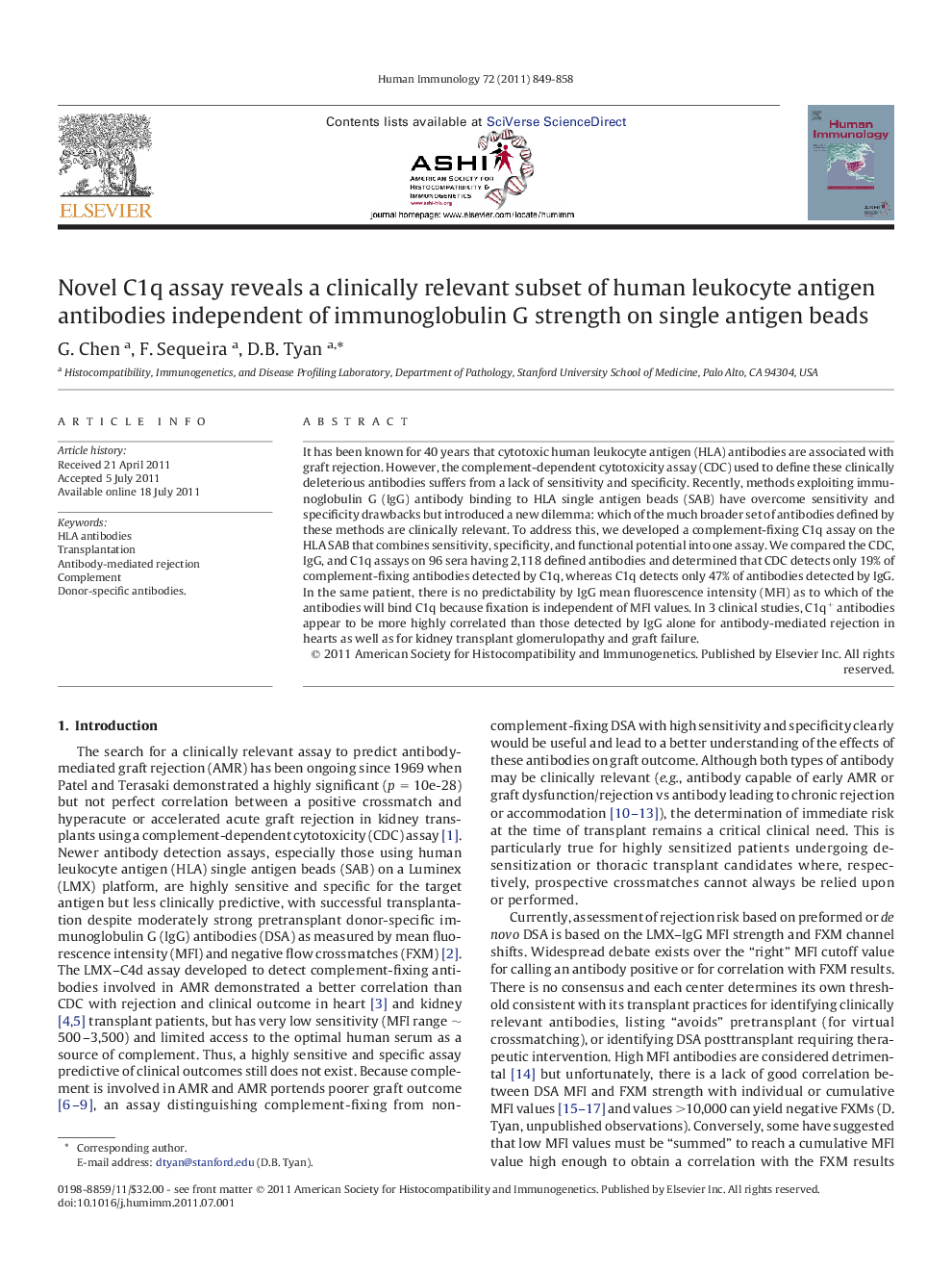| Article ID | Journal | Published Year | Pages | File Type |
|---|---|---|---|---|
| 3350706 | Human Immunology | 2011 | 10 Pages |
It has been known for 40 years that cytotoxic human leukocyte antigen (HLA) antibodies are associated with graft rejection. However, the complement-dependent cytotoxicity assay (CDC) used to define these clinically deleterious antibodies suffers from a lack of sensitivity and specificity. Recently, methods exploiting immunoglobulin G (IgG) antibody binding to HLA single antigen beads (SAB) have overcome sensitivity and specificity drawbacks but introduced a new dilemma: which of the much broader set of antibodies defined by these methods are clinically relevant. To address this, we developed a complement-fixing C1q assay on the HLA SAB that combines sensitivity, specificity, and functional potential into one assay. We compared the CDC, IgG, and C1q assays on 96 sera having 2,118 defined antibodies and determined that CDC detects only 19% of complement-fixing antibodies detected by C1q, whereas C1q detects only 47% of antibodies detected by IgG. In the same patient, there is no predictability by IgG mean fluorescence intensity (MFI) as to which of the antibodies will bind C1q because fixation is independent of MFI values. In 3 clinical studies, C1q+ antibodies appear to be more highly correlated than those detected by IgG alone for antibody-mediated rejection in hearts as well as for kidney transplant glomerulopathy and graft failure.
